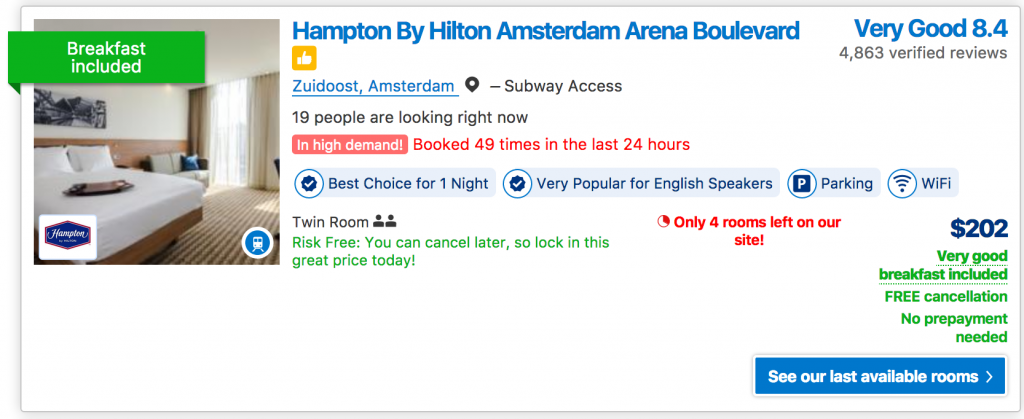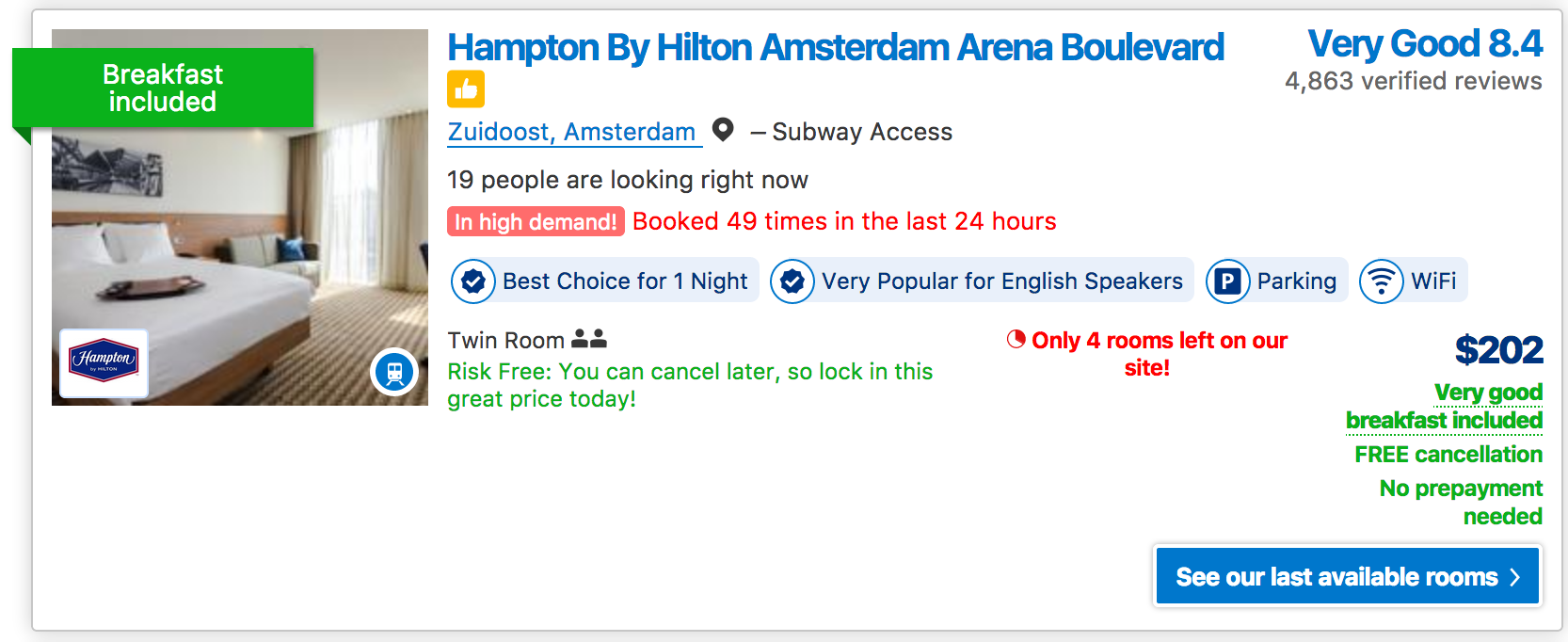This post is also available in Dutch.
The Netherlands is a free country: We do exactly what we want, or do we? If you look closely, you’ll start to see the ways in which your decisions are being manipulated every day.
 The website of Booking.com influences your buying decisions in many ways, which is an example of ‘nudging’. Screenshot taken on 10 July 2017.
The website of Booking.com influences your buying decisions in many ways, which is an example of ‘nudging’. Screenshot taken on 10 July 2017.
I recently took a plane from Schiphol airport. Right before departure I visited the restroom at the gate, and noticed something many men will recognize: the urinals contained a sticker of a fly. Some Googling revealed that this little sticker has led to a decrease of nearly 10% in cleaning costs of the bathrooms, because suddenly men began aiming properly. Clever!
Nudge
The fly in the urinal is a prime example of a ‘nudge’, a little push used by designers of public spaces, shops and websites to influence visitors’ behavior. In recent years, especially since the book Nudge by behavioral economists Richard Thaler & Cass Sunstein, there has been much debate about this type of behavioral influence.
Some people are excited about nudging, since they can be applied towards positive goals. The lunch venues at Google are one example: here fruit is placed at eye level, while candy bars require you to bend down to grab them. In this way the company induces healthier diets in its employees. But nudges can also lead to less beneficial choices. Think of a child in the supermarket: the colorful candy wrappers are almost impossible to resist.
Power
It is often unclear whether a particular nudge will lead to better or worse decisions. Still, many people do not like the idea of undergoing external influence, since this actually implies a reduction in the power to determine your own future.
A good example of this shift in power can be found in Uber and Lyft taxi drivers. In these app-based systems, the drivers themselves decide which customers they pick up, but they are nonetheless submitted to nudging. Uber and Lyft send clever messages to drivers, such as: ‘You’re $10 away from making $330 in net earnings. Are you sure you want to go offline?’ or ‘If you go offline now, you’ll miss out on $25.’
Economics research has shown that people are highly sensitive to these kinds of messages. Focusing on concrete goals and losses, instead of profits, is a strong motivator. Of course it is normal for an employer to motivate their employees, but what if a tired driver is successfully persuaded to start another ride against his will? This might lead to dangerous situations. Moreover, a transfer of power from employee to employer is often a bad sign, especially for drivers who do not enjoy much legal protection to begin with.
Think critically
Whether nudges are good or bad on the whole is a difficult philosophical question. In any case, nudges make us think about the nature of our decisions. Choices do not just originate from sincere motives, but also from our mental state and objects in our environment.
Still not convinced? Then take a good look around you, for example when booking a trip on Booking.com (see image above), ask yourself: who is calling the shots here?
This blog was written by Jeroen. Edited by Annelies.
